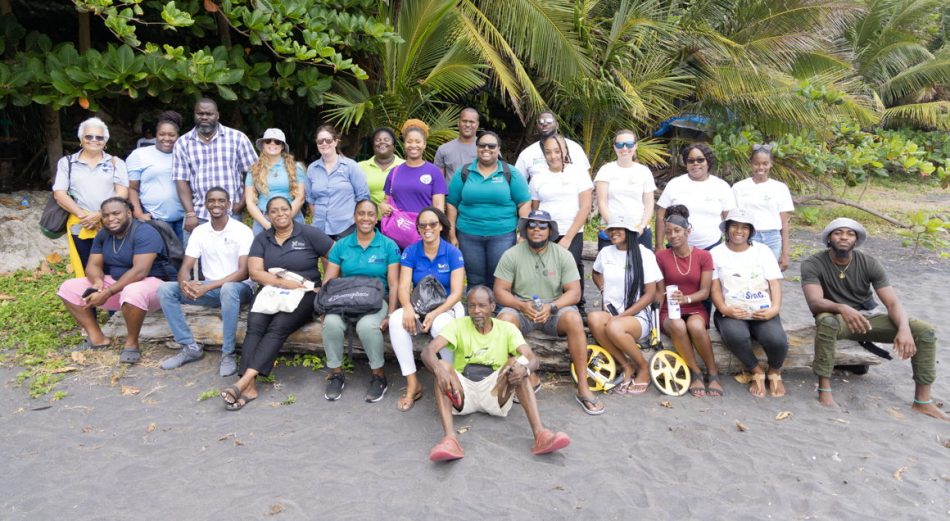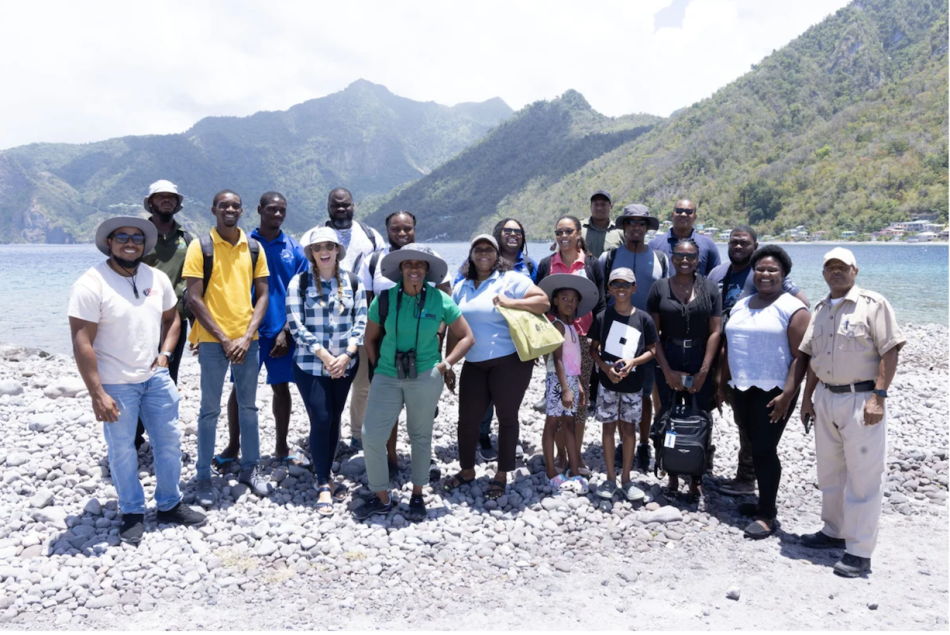OECS Conducts Regional Marine Biodiversity Conservation and Sea Turtle Monitoring Training

May 9, 2023 — There are 12,046 recorded marine species in the Caribbean Region with 31 phyla – or groups of related organisms – represented. However, these species face several major threats, including plastic and chemical pollution, climate change, diseases, and overexploitation. According to the International Union for Conservation of Nature and Natural Resources (IUCN), over 1,550 marine plants and animals are at risk of extinction globally, many of which are found in the Caribbean.
The Organisation of Eastern Caribbean States (OECS) through the EU-funded BioSPACE Project, hosted a regional Marine Biodiversity Conservation Workshop and Sea Turtle Monitoring Training from April 17 – 21 in Dominica for regional stakeholders – technical officers, fisheries extension officers, agencies responsible for management of marine protected areas, dive tour guides, and students, among others. Several activities were undertaken to strengthen the capacity of the stakeholders to manage, conserve and sustainably use marine, coastal and terrestrial biodiversity, and to increase their capacity to successfully manage a turtle monitoring program towards the conservation of sea turtle species.
Head of the OECS Environmental Sustainability Division, Mr. Chamberlain Emmanuel during his welcome remarks to the participants said, “Hosting of this training workshop contributes to the implementation of key OECS frameworks and action plans, including the St. George’s Declaration (SGD) of Principles for Environmental Sustainability.” The agenda set out in the SGD 2040 responds to priority environmental problems and opportunities for nature-based solutions in the Eastern Caribbean: climate change and sea-level rise, threats to biodiversity, threats to freshwater resources, land degradation, degradation of coastal environments and marine resources, pollution and waste management, and high energy costs.
The Marine Biodiversity Conservation Workshop focused on identifying and addressing the threats to biodiversity and discussing the role of marine biodiversity in the promotion of the Blue Economy. “Quite often, we take it for granted that the basis for lots of our medicines is actually from marine organisms and plants. We have a lot of the marine sponges that are at the forefront of developing a lot of the medicines we use for cancer, etc,” said Dr. Stephen Nimrod, Marine Biologist, and workshop facilitator. Increasingly, threats to marine biodiversity are being taken seriously because of their implications for the current and future use of these important resources.
Currently, Stony Coral Tissue Loss Disease (SCTLD) is decimating many coral reef ecosystems in the region. Workshop participants discussed the threat in detail and were presented with success stories in dealing with the issue by Simon Walsh of Nature Island Dive, Dominica. Dominican Fisheries personnel have noted the increase in SCTLD and have partnered with dive companies on island to treat the infected coral with antibiotics. Towards the end of the workshop, there was consensus on advancing efforts to identify and tackle this problem together.
The Sea Turtle Monitoring Training examined the life cycle and habits of turtles and identified the species found in the region. Best practice conservation actions were discussed, and participants were equipped with tools to implement these. The facilitators took participants to Rosalie Bay in Dominica, a prime nesting spot for turtles, including the leatherback and hawksbill species. They were taught techniques to monitor and tag the reptiles when nesting. At the end of the session, Marcella Harris from the Dominica Sea Turtle Conservation Organisation (DOMSetCo) urged participants to make progress in conserving sea turtles by committing to long-term population monitoring at major nesting and foraging sites, ensure that marine vessel traffic is organised to reduce threats of boat strikes, partner with authorities to install beachfront lighting that is turtle friendly, and to build livelihoods that diversify from extraction based economies – economies that primarily remove natural resources from the environment – to economies which maximise the value of the living resources.







